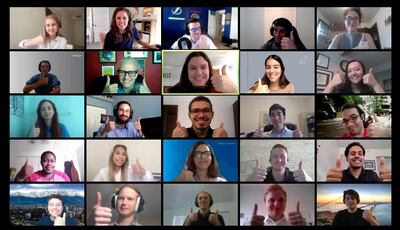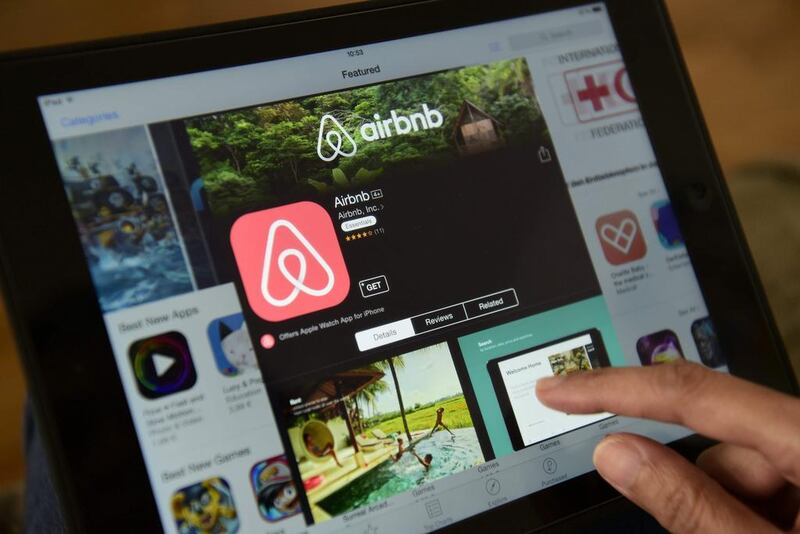In the wake of crises, we often find tectonic shifts in certain industries, driven by sudden and drastic changes in consumer behaviour and business sentiment. These often culminate in new platforms.
As a result of a surge in demand for certain products, services or revised pricing, an overwhelming number of companies and assets are mobilised to capture these new market opportunities. Think Airbnb, founded in 2008, or Uber, which launched the following year. Both created on-demand platforms to allow individuals to monetise their idle commodities: cars, time and space. The advancement of technology has allowed us to consolidate commodities under one umbrella, called a platform, enabling users and purchasers to easily identify, negotiate and purchase these products or services, forever changing the face of the industry.
Suddenly, anybody with a car or a house – and a reliable Internet connection – could use these platforms to offer trips from point A to B or a holiday rental, opening up new and massive addressable markets in sectors that had been historically limited by regulation or infrastructure shortfalls. The aggregation of these commodities, coupled with the user-friendliness of the technology, created platforms that changed the face of their respective industries: transportation and accommodation.

New start-ups took these on-demand models even further to create platforms that tapped adjacent or expanded market opportunities. E-scooter ventures Bird and Lime built businesses serving last-mile mobility needs. DoorDash raised $2.5 billion for its on-demand food delivery service and Turo made it possible for people to rent out their unused cars via an app, altering forever the way we order food, and the think about logistics.
So what market disruption will come from Covid-19? I expect accelerated innovation and adoption of platforms that commoditise and digitise medicine, education and employment, amongst others.
The most obvious surge in demand has been in health care, where despite significant technological advancements, a user-friendly patient journey for those who fall sick does not yet exist. There is not one platform to carry a patient from sickness to wellness seamlessly: to include information, booking, tele-consultation, medical records and pharmaceutical delivery.
The pandemic has encouraged an incredibly large number of HealthTech start-ups to consider how we may re-invent this space.
The commoditisation of medical consultations over the phone or via web chat has rendered them a feature in most digital health solutions. These are now scaling to solve other industry challenges, ultimately bringing the entire medical office experience online, from diagnosis to booking a doctor’s appointment to administration, and automatically tracking health data (enabled by the commoditisation of wearables).

Ultimately, this will form the creation of a platform: one place to go for all your healthcare needs.
The biggest bottleneck for EdTech start-ups has always been the quality and availability of educational content. For many years, start-ups in this vertical struggled to find – and to create – engaging educational content. Then came Covid-19.
In a few short months, the world of education was inundated with content (good, bad, public, private, accurate, inaccurate) and education technology companies saw an unprecedented boom in users as schools and parents were forced to use remote learning options. Educators and parents alike grappled with making sense of all this new content, and these new start-ups: separating out the valuable from the useless, consolidating it and sharing it in a useful manner with children – all remotely and using technology.
The ineffectiveness of this process, combined with the commoditisation of content, highlights the massive need for an education platform: a user-friendly journey where content is consolidated, sorted and presented to the user in a manner that creates value, is trackable and where results can be seen.
WFH is the quintessential acronym to capture the impact of this pandemic on employment. Covid-19 has confined a greater number of people to their homes than perhaps any other event of the past hundred years. The shift has largely demonstrated that individuals can continue to create value for their organisations by working remotely, heralding an opportunity for the concept of work and offices to be revisited.

This confinement has given rise to more than just the adoption of video conferencing applications such as Zoom. It will force mindset changes around remote work, value creation and the complete abolishment of "face-time" at the office. This shift will democratise access to work opportunities and ensure individual contribution is measured by value created, not time spent.
For jobs where physical presence is required, technology and matching will be used to create platforms where the commoditisation of skills and time are factored into optimal matching with opportunities offering the highest level of pay, down to the week, day and even the hour.
I can imagine a platform that will one day match jobs directly to the online training and education required to do them and that then assigns future monetary value to different digital learning options.
A recent example of just such an approach is a company called Ogram. Its “human-cloud” platform offering on-demand temporary staffing solutions for on-site manpower, acting as a freelance marketplace connecting temporary workers to jobs in F&B, hospitality, retail, e-commerce and logistics sectors depending on time spent, and talent proven. This is, however, just the beginning.

As these three industries, in addition to others, experience a surge in technology adoption and reinvent themselves, history has taught us that the winners will be the platforms that create the most effective user-friendly journeys, allowing customers to access their desired products and services intuitively, and preferably in less than three clicks.
The rise of mobility platforms changed the world: it democratised access and opportunities for jobs across emerging economies where people could now easily go to work, creating income for their families.
There are now economic tailwinds to send health care, education and employment in a similar direction. This will provide inclusion in developed and developing regions alike: democratised access to these industries provide new opportunities and change the world.
Noor Sweid is founder and general partner of Global Ventures






